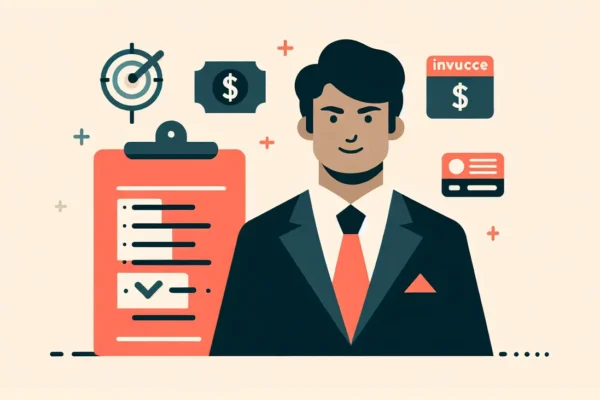Fintech is revolutionizing many sectors, and debt recovery is no exception. In recent years, the UK has seen a significant shift in how debts are managed and collected, thanks to technological advancements. This article explores how fintech is transforming debt recovery, the benefits it brings, and the future it holds in the UK.
Understanding the Current State of Debt Recovery in the UK
Traditionally, debt recovery has been a cumbersome process, relying heavily on manual intervention and often lacking transparency. However, with the rise of fintech solutions, there’s been a paradigm shift, encouraging organizations to adopt more efficient and consumer-friendly practices.
Over the past decade, the landscape of debt recovery in the UK has remained relatively static while society’s expectations have grown. Customers now demand swifter resolutions, clarity in communication, and a sense of empathy during economic hardships. This is where fintech intersects significantly with debt recovery, altering perceptions and setting new standards in the industry. The digital age has ushered in a wealth of tools and resources, promoting seamless integration between creditors and debtors.
Despite its strengths, the traditional model has been marked by rigidity. For years, the approach has been one-size-fits-all, which often neglects the unique circumstances of each debtor. Collection agencies found their operations hampered by inefficiencies, and customers frequently felt alienated. Yet, the steady influx of fintech innovations is challenging this outdated model, providing new pathways to rejuvenate the sector.
How Fintech is Transforming Debt Recovery
Fintech companies bring innovative approaches to debt recovery by leveraging technologies like AI and machine learning. These advancements facilitate personalized communication strategies, enhanced data analysis, and predictive modeling, making the process more streamlined and effective.
Artificial intelligence, in particular, is playing a transformative role. Through AI-driven analytics, companies can profile customer behaviors, anticipate payment patterns, and personalize interactions—leading to higher resolution rates. Moreover, machine learning algorithms can identify high-risk accounts before they become delinquent, allowing proactive engagement with at-risk customers.
Moreover, these technologies empower companies to engage with consumers on their terms, using platforms they are comfortable with, like mobile apps and online portals. This digitization not only improves convenience but also provides a layer of transparency that builds trust in financial institutions. In moving away from traditional methods, fintech solutions are harmonizing technology with human instincts to foster relationships and mutual understanding.
The Role of Automation in Streamlining Processes
Automation plays a vital role in fintech’s impact on debt recovery. Automated systems handle repetitive tasks efficiently, reducing human error and lowering operating costs. This allows businesses to focus on core activities and improve customer relations.
For instance, automated reminder systems can be configured to send prompts about upcoming due dates, thus reducing the need for manual follow-ups. This not only enhances operational efficiency but also minimizes the need for contentious collection calls. Automation can also assist in the compliance processes, ensuring that all procedures align with current regulations.
An interesting consequence of automation is the liberation of human resources. With repetitive tasks offloaded to technology, teams can pivot to more strategic activities, such as personalizing customer journeys or developing new financial products. This shift in workforce dynamics indicates a broader evolution—one where human ingenuity is augmented by technological progress.
The Benefits of Fintech Solutions for Consumers
Consumers stand to gain significantly from fintech-driven debt recovery. These solutions often provide greater transparency, allowing consumers to easily access and manage their debt through user-friendly platforms, ultimately leading to a more cooperative and less intimidating experience.
Beyond transparency, fintech platforms offer educative insights into personal finance. By understanding spending patterns and financial behaviors, consumers can make better-informed decisions. This educational aspect empowers individuals to regain control over their financial health and reduce future debt risks.
Furthermore, with fintech’s ability to offer personalized repayment plans, consumers find themselves partnering with service providers rather than being intimidated by them. This dynamic creates a mutually beneficial relationship, enabling smooth negotiations and timely resolutions.
Challenges and Considerations for Fintech Debt Recovery
While the advantages are evident, fintech debt recovery also faces challenges such as regulatory compliance, data security, and the need for constant technological updates. Addressing these concerns is crucial for building trust among both businesses and consumers.
Ensuring data privacy is paramount as fintech solutions often involve handling sensitive personal information. Companies must implement robust security measures to protect this data against breaches and cyber-attacks. Additionally, staying ahead of regulatory changes demands agility, as financial regulations are continuously updated to ensure consumer protection and market stability.
A further consideration is maintaining accessibility for all consumers, including those less tech-savvy. While digital solutions streamline processes for many, they can inadvertently exclude older demographics or those without easy access to digital platforms. Bridging this gap requires thoughtful interface designs and outreach strategies that cater to diverse customer bases.
Looking Ahead: The Future of Fintech in Debt Recovery
The future of fintech in debt recovery looks promising with continued advancements in technology and a strong focus on ethical practices. As the industry continues to innovate, we can expect more sophisticated solutions that further enhance the efficiency and effectiveness of debt recovery in the UK.
There is an emerging trend towards the use of blockchain technology, which could bring unparalleled transparency and security to the debt recovery process. With immutable ledgers, all parties involved can track transactions in real-time, ensuring accuracy and mitigating disputes.
In addition, the focus on integrating more ethical tech solutions aims to humanize the debt recovery journey. By prioritizing empathy and fairness, fintech companies aim to change the perception surrounding debt management, transforming it from a burden into an opportunity for financial education and growth.
Embracing a Tech-Driven Future in Debt Recovery
As fintech continues to evolve, debt recovery processes in the UK are poised for significant transformation. With the integration of advanced technologies and a consumer-first approach, the future of debt recovery is looking more efficient, transparent, and accessible. The convergence of technology and finance is not just a trend—it’s a leap towards a more sustainable and optimized financial ecosystem.







